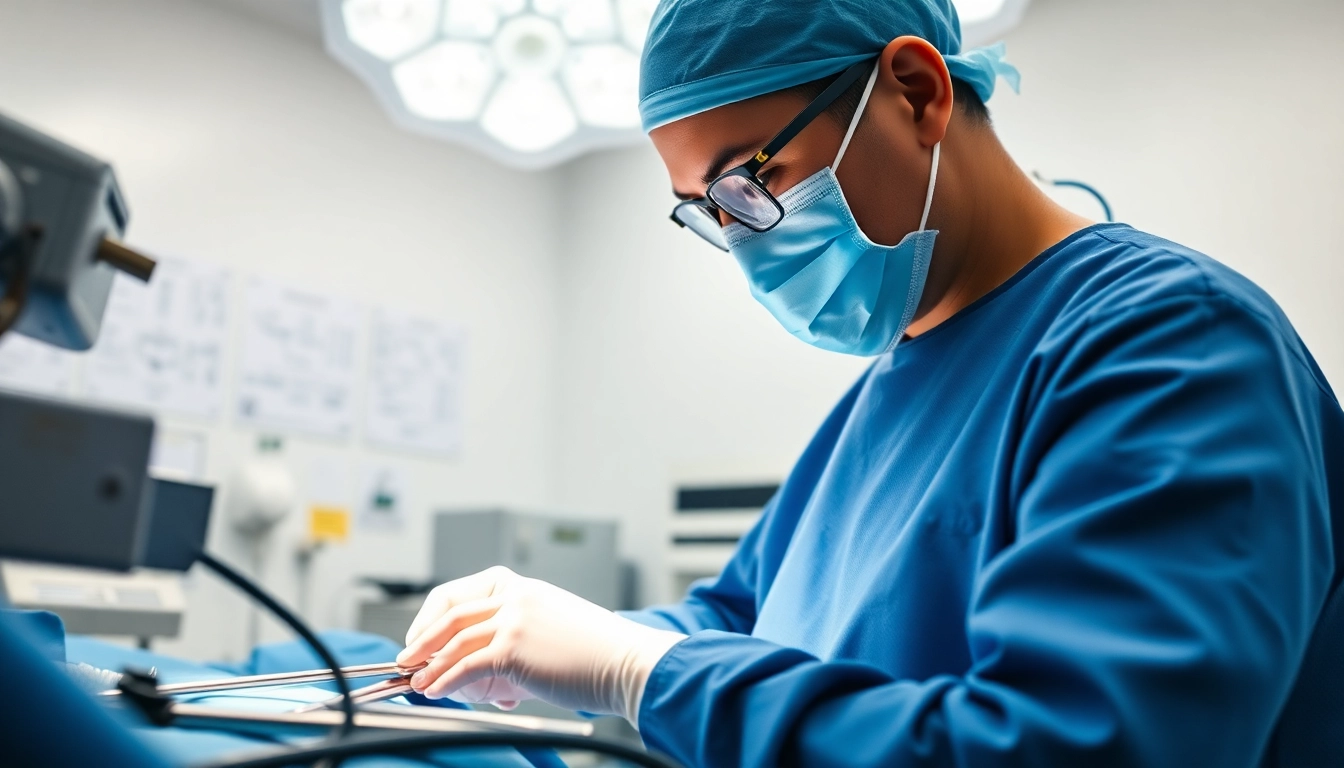Understanding Bioidentical Hormone Therapy
What is Bioidentical Hormone Therapy?
Bioidentical hormone therapy refers to the use of hormones that are chemically identical to those the human body produces naturally. These hormones are typically derived from plant sources and are designed to replicate the natural effects of human hormones. In the context of hormone replacement therapy, bioidentical hormones aim to restore hormone levels that may have declined due to various life stages, especially during menopause, andropause, or other hormonal imbalances.
This form of therapy contrasts with traditional hormone therapy, which often utilizes synthetic hormones that may not perfectly match the structure of naturally occurring hormones within the body. Among the most common bioidentical hormones are estrogen, progesterone, and testosterone, which play crucial roles in various physiological processes.
The growing interest in Bioidentical hormone therapy can be attributed to the search for more personalized, effective treatment options for those experiencing uncomfortable symptoms related to hormonal fluctuations.
How Bioidentical Hormone Therapy Works in the Body
Bioidentical hormone therapy works by enhancing hormone levels in the body to achieve a balance that might have been disrupted due to aging or specific health conditions. The therapy relies on the principle that having optimal hormone levels can lead to improved physical and emotional well-being.
Upon administration, bioidentical hormones bind to hormone receptors in the body, which triggers physiological responses similar to what naturally occurring hormones would elicit. Depending on the individual’s unique hormonal needs, the therapy can be administered via various methods, including:
- Pills: Oral medications that deliver hormones to the bloodstream.
- Transdermal patches: These allow hormones to be absorbed through the skin.
- Injections: Direct hormone delivery into the bloodstream for rapid absorption.
- Topical creams or gels: Applied directly to the skin for localized absorption.
- Pellets: Small hormone pellets that can be inserted under the skin for sustained release.
The administration method may vary based on the desired speed of hormone delivery, individual absorption rates, convenience, and lifestyle preferences.
Common Applications of Bioidentical Hormone Therapy
Bioidentical hormone therapy is most commonly associated with treating menopausal symptoms in women, including hot flashes, night sweats, mood swings, and decreased libido. However, its applications extend beyond menopause:
- Andropause in Men: Treatment of symptoms such as fatigue, depression, and reduced libido associated with declining testosterone levels.
- Thyroid Hormone Restoration: Addressing thyroid imbalances that can affect metabolism and energy levels.
- PMS and PMDD Relief: Mitigating symptoms of premenstrual syndrome (PMS) and premenstrual dysphoric disorder (PMDD).
- Postpartum Treatment: Supporting hormonal balance after childbirth to help manage postpartum depression or fatigue.
- Age-Related Hormonal Changes: Focusing on hormonal changes due to chronic health issues, stress, or aging.
Despite its widespread use, each application must be considered carefully with the guidance of qualified healthcare practitioners to tailor the treatment according to individual needs.
Benefits of Bioidentical Hormone Therapy
Managing Hormonal Imbalances Through Bioidentical Hormone Therapy
One of the most significant advantages of bioidentical hormone therapy is its ability to manage hormonal imbalances effectively. Hormonal deficiencies can lead to a variety of distressing symptoms, impacting several aspects of life. By restoring the natural levels of hormones, individuals often experience improvements in:
- Energy Levels: Hormonal equilibrium can lead to increased energy and improved stamina.
- Emotional Well-being: A balanced hormonal state can significantly reduce mood swings, anxiety, and depression.
- Sleep Quality: Many individuals report sounder sleep with fewer nighttime disturbances.
- Libido: Restoration of hormone levels has been associated with improved sexual health and desire.
These improvements can contribute to enhanced overall health and quality of life.
Potential Advantages Over Traditional Hormone Therapy
Compared to traditional hormone replacement therapies, bioidentical hormone therapy boasts several potential advantages:
- Personalization: Bioidentical hormones are often tailored to fit the specific hormonal profile of the individual, making treatment more personalized and effective.
- Fewer Side Effects: Because they mimic the body’s natural hormones, many patients experience fewer side effects than those who use synthetic alternatives.
- Variety of Delivery Methods: Patients have options when it comes to how they receive treatment, accommodating different preferences and lifestyles.
- Potentially More Effective: Some studies suggest that bioidentical hormones may be more efficiently utilized by the body, leading to better outcomes.
Despite these advantages, it is essential to weigh the risks alongside the benefits, as everyone’s hormonal needs and responses can differ.
Improving Quality of Life with Bioidentical Hormone Therapy
Improving quality of life is one of the core objectives of any medical treatment, and bioidentical hormone therapy is no exception. Individuals interested in this therapy often seek relief from debilitating symptoms that profoundly affect their daily lives. By addressing the root causes of these symptoms, bioidentical hormone therapy can significantly enhance:
- Physical Health: Alleviating symptoms such as fatigue and muscle weakness can encourage more active lifestyles.
- Social Interactions: Relief from mood swings and emotional distress can lead to improved relationships and social engagement.
- Self-Esteem: Many patients report a boost in confidence and overall happiness after achieving hormonal balance.
This holistic approach to well-being is critical in the ongoing pursuit of health and happiness during transitional life stages.
Risks and Considerations
Understanding Side Effects of Bioidentical Hormone Therapy
While bioidentical hormone therapy can offer numerous benefits, it is crucial to understand that it is not without potential side effects. As with any medical treatment, the possibility of adverse reactions exists. Common side effects associated with bioidentical hormone therapy can include:
- Weight Gain: Some individuals may experience changes in appetite or metabolism, leading to weight fluctuations.
- Headaches: Fluctuations in hormone levels might trigger persistent headaches or migraines in some patients.
- Bloating: Hormonal adjustments can lead to digestive changes or bloating.
- Skin Reactions: Some may experience irritation or allergic reactions at the application site (in the case of topical treatments).
- Increased Risk of Certain Conditions: There may be an elevated risk of conditions such as blood clots or certain cancers, depending on the hormones used and individual health history.
It’s essential for patients to discuss these potential side effects with their healthcare providers to ensure that the benefits of treatment outweigh any risks.
Who Should Avoid Bioidentical Hormone Therapy?
Not every individual is an ideal candidate for bioidentical hormone therapy. Certain groups of people may be advised to avoid this form of treatment or to proceed with extreme caution. This can include:
- Individuals with Hormonal Cancers: Those with a history of hormone-sensitive cancers, such as breast or prostate cancer, should generally avoid hormone therapies.
- Patients with Cardiovascular Risks: Those with a history of heart disease or blood clotting disorders may need to refrain from using hormone treatments.
- Pregnant or Nursing Women: Hormonal treatments are typically not recommended during pregnancy or while breastfeeding.
- Individuals with Active Liver Issues: Since hormones are metabolized by the liver, dysfunction in this organ could complicate treatment.
A comprehensive medical assessment is essential to determine an individual’s eligibility for bioidentical hormone therapy.
Consulting Healthcare Professionals About Bioidentical Hormone Therapy
Before embarking on bioidentical hormone therapy, consulting with a qualified healthcare professional is imperative. During this consultation, healthcare providers will assess the individual’s medical history, current health status, and specific hormonal needs through detailed assessments and diagnostic tests.
It’s also an opportunity for patients to discuss their symptoms, expectations from the therapy, and any concerns regarding outcomes or side effects. Ensuring that one works cooperatively with a healthcare professional knowledgeable in hormonal therapies can lead to more effective and safer treatment plans.
Latest Research and Developments
Current Studies on Bioidentical Hormone Therapy Efficacy
The field of bioidentical hormone therapy is continually evolving, with ongoing research focused on evaluating the efficacy and safety of these treatments. Recent studies have sought to clarify the effects of bioidentical hormones compared to traditional synthetic hormones in various applications:
- Efficacy in Menopausal Relief: Several studies are exploring how effective bioidentical hormones are in alleviating menopausal symptoms compared to synthetic hormone therapies.
- Long-Term Effects: Research is being conducted into the long-term implications of prolonged bioidentical hormone therapy, including benefits and risks over many years.
- Personalization Enhancements: Investigation into genetic factors affecting individual responses to hormone therapies, enhancing the personalization aspect of treatment.
These studies underscore the importance of evidence-based practices in the implementation and advancement of bioidentical hormone therapy.
Emerging Trends in Hormone Therapy
Several emerging trends in hormone therapy may shape future approaches to bioidentical hormone treatments:
- Telemedicine: The rise of telemedicine offers opportunities for better access to hormonal health consultations, allowing individuals to seek guidance without geographical barriers.
- Cross-Referencing Genomics: Continued developments in genetic research may facilitate more individualized approaches to hormone therapy based on genetic predispositions and metabolic rates.
- Integration of Holistic Practices: There is a growing interest in integrating bioidentical hormone therapy with holistic health practices, such as nutrition and mental health support, to enhance overall treatment outcomes.
Staying informed about these trends can help patients and healthcare providers make the most appropriate choices for hormone health.
Future Outlook for Bioidentical Hormone Therapy
The future of bioidentical hormone therapy looks promising as research continues to demonstrate its effectiveness and potential applications. With advancements in technology, personalized medicine, and an increased understanding of hormonal health, this therapeutic approach is gaining recognition in mainstream medicine.
Continued patient education and communication between health professionals are crucial for ensuring safe practices and sufficient support for those undergoing treatment. As methodologies evolve and clinical evidence mounts, bioidentical hormone therapy could become a cornerstone in managing hormonal health across different demographics.
Taking the Next Steps
Finding a Qualified Provider for Bioidentical Hormone Therapy
Finding a qualified provider is a critical step in the process of beginning bioidentical hormone therapy. Ideal candidates for prescribing this therapy are typically licensed healthcare professionals specializing in endocrinology, gynecology, or integrative medicine.
When seeking a provider, consider the following:
- Credentials: Verify that healthcare providers have the appropriate training and certifications in hormone therapies.
- Experience: Look for providers with extensive experience in handling bioidentical hormone therapies and patient outcomes.
- Patient Reviews: Seeking patient feedback can provide insight into the quality of care and overall satisfaction.
- Consultation Process: A thorough initial consultation that addresses personal health concerns is essential.
Building a supportive and transparent relationship with a healthcare provider can greatly enhance the effectiveness of treatment.
What to Expect During a Bioidentical Hormone Therapy Consultation
During your initial consultation for bioidentical hormone therapy, several critical components will typically be covered:
- Medical History Review: A comprehensive review of your personal and family medical history, as this can influence hormonal health.
- Symptom Evaluation: Discussing specific symptoms you are experiencing and how they affect your daily life.
- Diagnostic Testing: You may undergo laboratory tests to assess current hormone levels.
- Treatment Options Discussion: Exploring potential treatment plans and delivery methods tailored to your needs.
- Potential Risks and Benefits: Understanding the expected advantages and any risks associated with the proposed therapy.
Transparency during this process helps ensure informed decision-making and fosters trust between healthcare providers and patients.
Monitoring and Adjusting Treatment with Bioidentical Hormone Therapy
Once treatment begins, ongoing monitoring is essential to evaluate its effectiveness and make necessary adjustments. Regular follow-up appointments allow healthcare providers to:
- Assess Symptoms: Gather feedback on symptom relief and any side effects experienced.
- Adjust Dosages: Fine-tune hormone dosages based on response to therapy and lab test results.
- Update Treatment Plans: Modify treatment protocols as needed to align with changing health needs or goals.
This iterative process ensures that bioidentical hormone therapy remains aligned with the patient’s evolving health landscape, supporting optimal outcomes.



